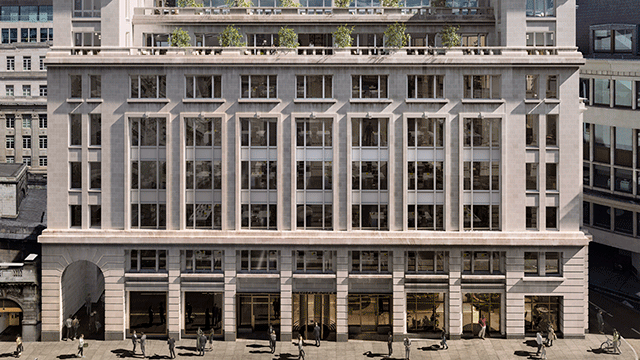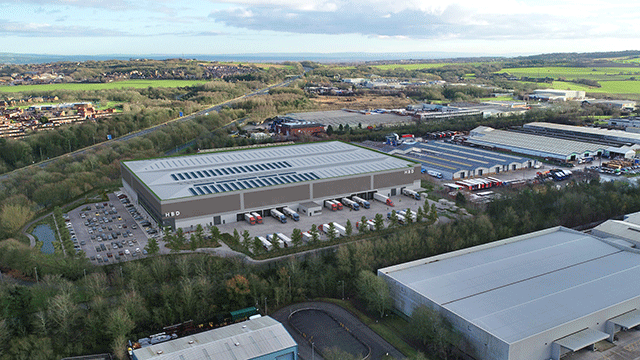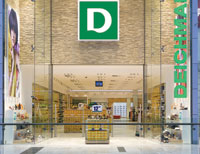“It’s not that we are not ready to spend more in the UK. There are enough funds,” explains Heinrich Deichmann, chief executive of Europe’s largest shoe retailer, Deichmann Group. “It is just a lack of opportunity.”
Unlike many retailers now, the family-owned business is in a sweet spot. Last year, Deichmann sold 152 million pairs of shoes worldwide and saw revenue rise by 12.5%, to €3.9bn (£3.4bn).
“We have been so successful in the past 12 years that we have more liquidity than we can invest. That, of course, is a very nice position. We don’t need the stock market to fulfil our growth,” he says.
Deichmann was handed the reins of the group from his father, Heinz-Horst, in 1999. Two years later, he brought Deichmann to the UK for the first time. The group marked its 10th anniversary in the UK last month when it opened its 52nd store at the Westfield Stratford City.
However, Deichmann has struggled to find the space it wants. It launched an aggressive expansion plan in 2009 to open around 400 shops in the UK, targeting in particular the top 200 towns and cities. But the plan has been frustrated by a lack of new stock resulting from the credit crunch, and a real estate market that, in part, is very different from Deichmann’s experience on the Continent.
“We still have a lot to do in the UK; the big challenge is stock,” says Andy Underwood, UK operations director at Deichmann. “We are there to go into new schemes, but investment is limited, so you’re not seeing these new shopping centres springing up the way they were.”
Development pipeline
Deichmann has captured what little of the development pipeline has come to fruition in the past couple of years. In addition to Westfield Stratford City, adjacent to the Olympic Park, Deichmann opened in Trinity Walk in Wakefield this year. It also has a flagship store at Westfield London.
Deichmann points to difficulties in negotiating turnover rent and the fact that rents in the UK are typically set at upward-only, open market rent reviews rather than linked to inflation as some of the other challenges linked with UK expansion.
“The upward-only rent review system, which is unique in all of Europe, doesn’t make it easy to open stores very quickly,” he says. “You have to be very sure the location is the right one and that you can stand those rent reviews in the upward-way only.
“I think that the situation is changing slightly because of the crisis in the retail environment. Landlords have to become more flexible. Some 40% [of retail space] in the UK is empty, and that cannot be healthy so, in my opinion, there must be some changes.”
Deichmann’s requirement is for stores of between 3,500 sq ft and 5,000 sq ft, particularly in the south. Underwood hopes to spend roughly €5m on 10 stores this year, bringing the UK portfolio to 57.
Deichmann is not alone in eyeing growth in the UK. According to CBRE’s research report, How active are retailers in EMEA?, the UK was the fifth most popular market in Europe, Middle East and Africa for international retailers as they ramped up their expansion plans in 2011.
Danish luxury retailer Evita Peroni, Spanish shoe retailer Coolway and Portuguese fashion brand Sacoor Brothers are among the latest European retailers to plan UK openings.
French brands The Kooples and Aubade, and Italian hosiery and beachwear retailer Calzedonia, have also started to get a foothold in this country.
They follow in the footsteps of a raft of European retailers that have already navigated the UK real estate market with varying degrees of success.
Spanish group Inditex, which owns Zara and Europe’s second-largest clothing retailer, Hennes & Mauritz, have both enjoyed huge success rolling out a number of brands between them and cementing their positions on the UK retail scene.
UK: the graveyard of European retailers
However, the UK is also the graveyard of other European retailers. Danish furniture chain Ilva arrived to great fanfare in 2006 in a bid to rival John Lewis within a decade. It collapsed into administration two years later because of the tough market conditions. Dutch furniture retailer Seats & Sofas turned its back on the UK in 2010 after failing to agree its first store with landlords.
Australian developer Westfield introduced a number of new European retailers to its flagship shopping centre, Westfield London. However, three years on, several of them, such as Turkish brands Ipekyol and Machka, as well as Athens-based No Name, have retreated back to their domestic markets
James Dolphin, head of pan-European retail agency at Jones Lang LaSalle, says: “I think that, generally, European retailers do find it quite tough coming to the UK. We probably have the most mature, diverse and dynamic market. The competition has always been pretty tough over recent years and it is still is in prime locations.
“Everyone wants to be in London and wants to make a statement, but rents and rates are high. A lot of European retailers find that a very difficult pill to swallow.”
Establishing brand awareness and points of differentiation are two key goals for European retailers entering the UK market.
Underwood says: “Deichmann is a brand that we need to get people to understand. The best way to do it is to put it under their noses where the highest footfall is. That is in city and town centres.
“We used to knock on landlords’ doors and often they were reluctant to open up. Now they are coming directly to us, and that is a sea change.
“There is a recognition now that the brand is a player in the UK market and more research has been done by landlords into just how large the organisation is.”
Dolphin says: “There are a lot of retailers that are very successful domestically and come to London thinking the streets are paved with gold.
“However, UK consumers don’t know who these players are and do not understand the brand.
“Spanish and Italian brands have had these sorts of difficulties in the past. They lack brand recognition and have not yet engaged with the UK customer.”











